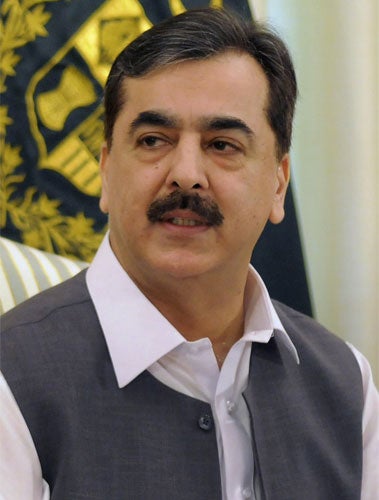Swat town fights back to push Taliban militants out
Civilian counter-offensive boosts military campaign in North West Frontier Province

Your support helps us to tell the story
From reproductive rights to climate change to Big Tech, The Independent is on the ground when the story is developing. Whether it's investigating the financials of Elon Musk's pro-Trump PAC or producing our latest documentary, 'The A Word', which shines a light on the American women fighting for reproductive rights, we know how important it is to parse out the facts from the messaging.
At such a critical moment in US history, we need reporters on the ground. Your donation allows us to keep sending journalists to speak to both sides of the story.
The Independent is trusted by Americans across the entire political spectrum. And unlike many other quality news outlets, we choose not to lock Americans out of our reporting and analysis with paywalls. We believe quality journalism should be available to everyone, paid for by those who can afford it.
Your support makes all the difference.Residents of a town in the Swat valley took up arms to drive out Taliban fighters who were seeking sanctuary from a major military operation, it has been revealed.
In a rare instance of locals having the resources and determination to confront the militants, residents of the town of Kalam ousted the fighters and captured eight of them. They are now awaiting another possible assault from the militants.
News of the counter-offensive against the Taliban, which may indicate growing public support for the Pakistani military's attempt to drive them from several areas in the North West Frontier Province, came as the amount of foreign aid donated to help civilians who have been driven from their homes by the fighting passed $200m (£127m).
At a donors' conference yesterday, Prime Minister Yousuf Gilani asked aid groups and other countries to help quickly rebuild affected areas and help stabilise his country.
"There is an urgent need for joint and comprehensive response to this issue by all those who are committed to fighting terrorism," Mr Gilani told the conference in Islamabad, barely 60 miles from the fighting.
"Without peace there can be no sustainable development and without development, the establishment of enduring peace is impossible."
Government forces are engaged in what appears to be a major offensive against the Taliban, who have seized control of large parts of Swat and the neighbouring districts of Buner and Lower Dir. The army says it has already killed more than 1,000 Taliban fighters and retaken large parts of Swat as well as the town of Sultanwas, described as the main militant stronghold in Buner following what were described as intense clashes.
"Sultanwas was the main stronghold of terrorist-miscreants in Buner, where they have made concrete underground bunkers and ammunition dumps," said the military spokesman Major-General Athar Abbas. With journalists effectively prevented from accessing the war zone, confirming such claims is impossible. At the same time, the military has admitted that the Taliban, while greatly outnumbered, are putting up fierce resistance and it has declined to predict how long the operation will take.
In such circumstances, the army will take a boost from reports about the actions of Kalam residents, who resisted the encroachment of about 50 Taliban fighters. Deputy Mayor Shamshad Haqqai told the Associated Press that when the militants tried to enter the town, which has a population of about 50,000 and which has so far remained outside Taliban control, local residents fought them off. "We will not allow Taliban to come here," he said.
The most obvious fall-out from the operation against the Taliban, which appears to have considerable public support, is the vast number of civilians who have poured out of the mountains in what represents Pakistan's biggest human displacement since partition.
Anywhere up to 1.5 million people have left their homes and while most of them are staying in the homes of extended families or rented rooms, many thousands have nowhere else to go but the 25-odd sweltering tent camps that have been erected outside of the conflict area. Many are near the city of Mardan. The 1.5 million people who have left in recent weeks join a further 550,000 who were forced from their homes in earlier fighting. Around half are children.
On Wednesday, Rear-Admiral Michael LeFever, the senior military official at the US Embassy in Islamabad, predicted that up to 250,000 civilians will still be living in the camps until the end of the year, an estimate that will be of grave concern to aid agencies and those who wish to return home.
The operation was launched after the breakdown of a controversial ceasefire with the Taliban.
Join our commenting forum
Join thought-provoking conversations, follow other Independent readers and see their replies
Comments